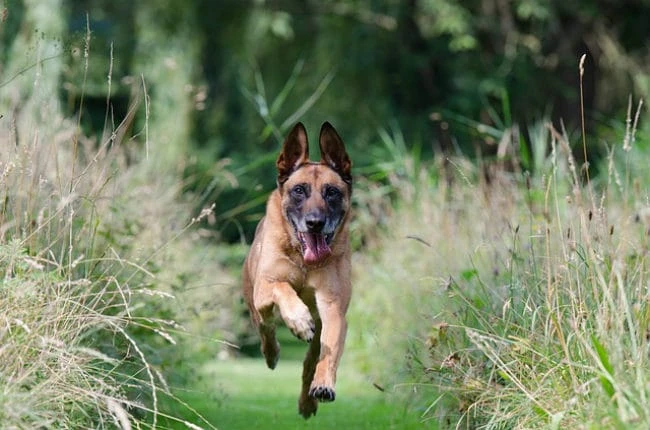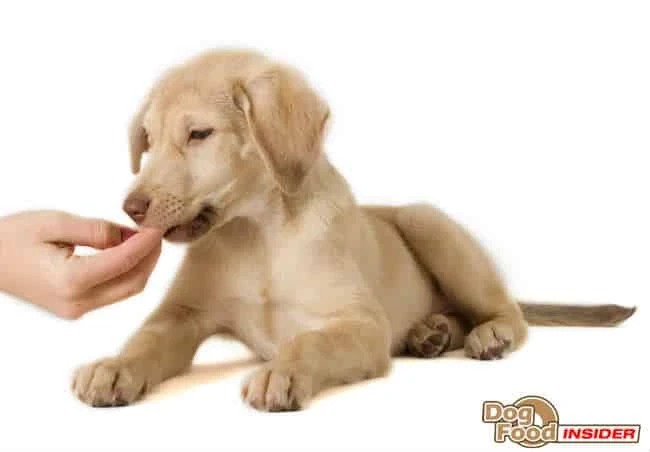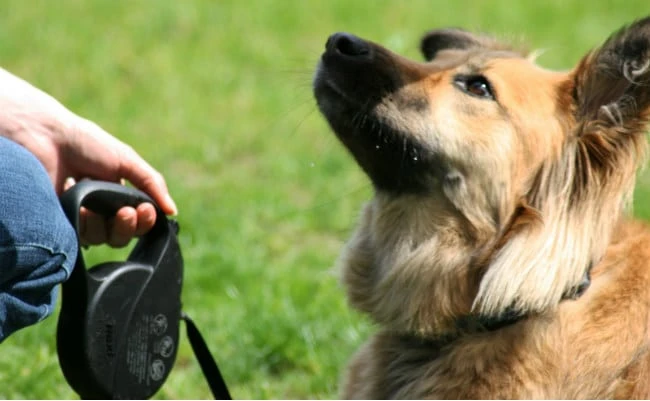How to Stop Dog & Puppy Biting – My 18-month Old Labrador Play Bites too Aggressively
by Liz Fitzpatrick
(Roxbury, CT USA)
How do I prevent and stop my dog biting? My husband and I “rescued” an 18-month old yellow lab from a situation of neglect. I don’t think there was abuse, but we were told she was left alone (crated I assume) for up to 8 to 10 hours a day. We also noticed that she had a haltie mark or something like it on her muzzle that still hasn’t gone away. I’m starting to see why that is.
We have had her a week; she is extremely sweet, smart and funny. She is relatively even tempered, and has taken to us, especially my husband. She is coming out of her shell, which is great, BUT… She’s playing too aggressively, and the “play biting” turns into some pretty painful sessions where she repeatedly goes after my sleeves. At that point, she bites and pinches my skin with her teeth. I say NO and walk away, but she will follow me and keep at it. Today, it became a bit scary actually. This evening, I was at my computer working and she started with the whining noises that escalated to barking. I stopped to play a bit with her, and she started the mouthing/biting thing again. This time, I yelled NO and promptly put her in her crate.
I didn’t expect her (Molly) to be perfect especially given where she came from, but this type of biting is totally unacceptable, even in play. Plus it just HURTS! and, I suspect if we don’t “nip” it in the bud, now she may become aggressive in the future.
Please help! I’ve tried the high pitched yelping. That just seems to freak her out. I’ve also tried having her lie down and stay still until she seems a little less feisty.
Our Response
Hi and thanks for asking a question as it rally helps our site stay happy and healthy. Firstly give yourself a big pat on the back! Taking on a new dog that has been in a Rescue Shelter is a fantastic thing to do – it not only gives a dog a new home but it proves you are a loving owner who cares about dogs – you are one step a head already.
You are right it is very difficult to know exactly what your dog has previously experienced but what you have said in the short paragraph does sound like abuse. A dog should never be in a crate for 8 – 10 hours a day and should definitely not have a Haltie mark on the skin.
By being placed in a Crate by the previous owners she has learned to behave in a certain way – remember that all behavior is ‘learned’ and then reinforced by the owners response (or lack of it). In your dog’s case my initial feeling is that your dog was placed in a Crate for so long that he simply craved attention and when he did get attention there was no actual ‘training’ he was simply placed on a muzzle and left to get on with it.
When your dog starts whining or barking – ignore him – do not pay him any attention at all – not an ounce. You see when your dog starts barking and whining and you then play with him you are simply reinforcing this negative behavior – your dog is actually thinking ‘wow not only can I bark and whine but when I do I also get some play time’!
When it is time for a play – avoid games that allow your dog to display dominance over you – for example games of tug can lead to problems – you see every-time your dog wins the toy you are reinforcing that your dog is more dominant – any game that you play it is vital that you end up with the toy. When the am is finished use basic obedience training techniques like ‘sit’ to reinforce your position as the pack leader.
Using the ‘Yelp’ technique is a very useful obedience training method to stop biting – as soon as your dog bites or nips you make out that it really hurts – get up and walk out of the room – ignore your dog for some time – this is called giving your dog some ‘time out’. You need to let your dog know that biting or nipping during play will result in the end of play.
If your dog does bite you say ‘NO’ and take any toys away – leave the room – your dog will soon learn to associate the end of play with biting.
Provide your dog with lots of chews – chewing objects releases chemicals that calm and relax a dog. Your dog needs to learn what is acceptable to chew, nip and bite.
Give your dog lots and lots of exercise – a tired dog will be less likely to misbehave.
Consider one on one obedience training with a professional dog trainer – the trainer will be able to spot and cure any problems as they happen. Dog training classes are an excellent way to cure behavioral problems and ask other owners questions.
Hope this helps




